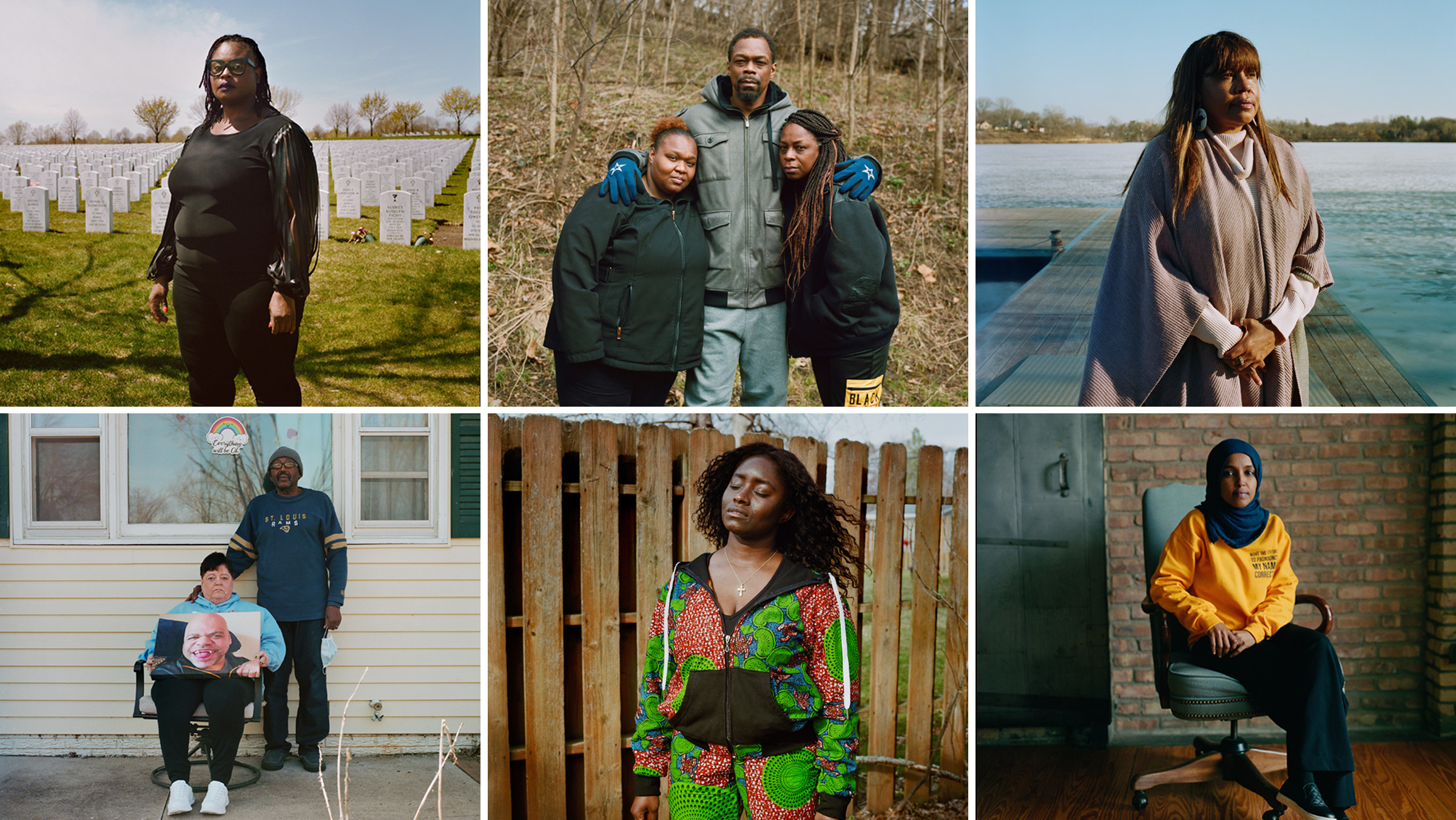At the start of the COVID-19 pandemic, as hospitals facilitated goodbyes over iPads and funeral homes buried dead without services, families were left with a uniquely isolating grief, devoid of the rituals that traditionally surround death.
For Black Americans, who were 1.9 times more likely than white Americans to die of COVID-19 at the start of the pandemic, this stifled grief fits into a long history of unacknowledged pain. Dating back to slavery, when scientific journals claimed that Black people had higher pain tolerances, to now, as the maternal mortality rate for Black women is 2.9 times that of white women, Black Americans have long faced medical discrimination. The pandemic—and the racial justice reckoning that erupted after the death of George Floyd—only magnified many of the structural inequities that left Black Americans more vulnerable.
In spring 2021, photographer Andrea Ellen Reed drove from Minneapolis, Minn., where she currently lives, to her hometown of Peoria, Ill., to capture photographs and long-form interviews with Black Americans in five Midwest cities who had lost family members to COVID-19. “You don’t always see stories about Black people in the Midwest,” says Reed, who wanted to document people and landscapes that were familiar to her. “There are some really powerful stories of everyday people that wouldn’t necessarily be told.”
In May, the U.S. tallied its 1 millionth reported COVID-19 death. Now, an estimated 9 million families are attempting to move forward without spouses, parents, grandparents, siblings, and children—and often without having been able to truly say goodbye. Below are the stories of some of these individuals in their own words, edited for clarity and brevity.
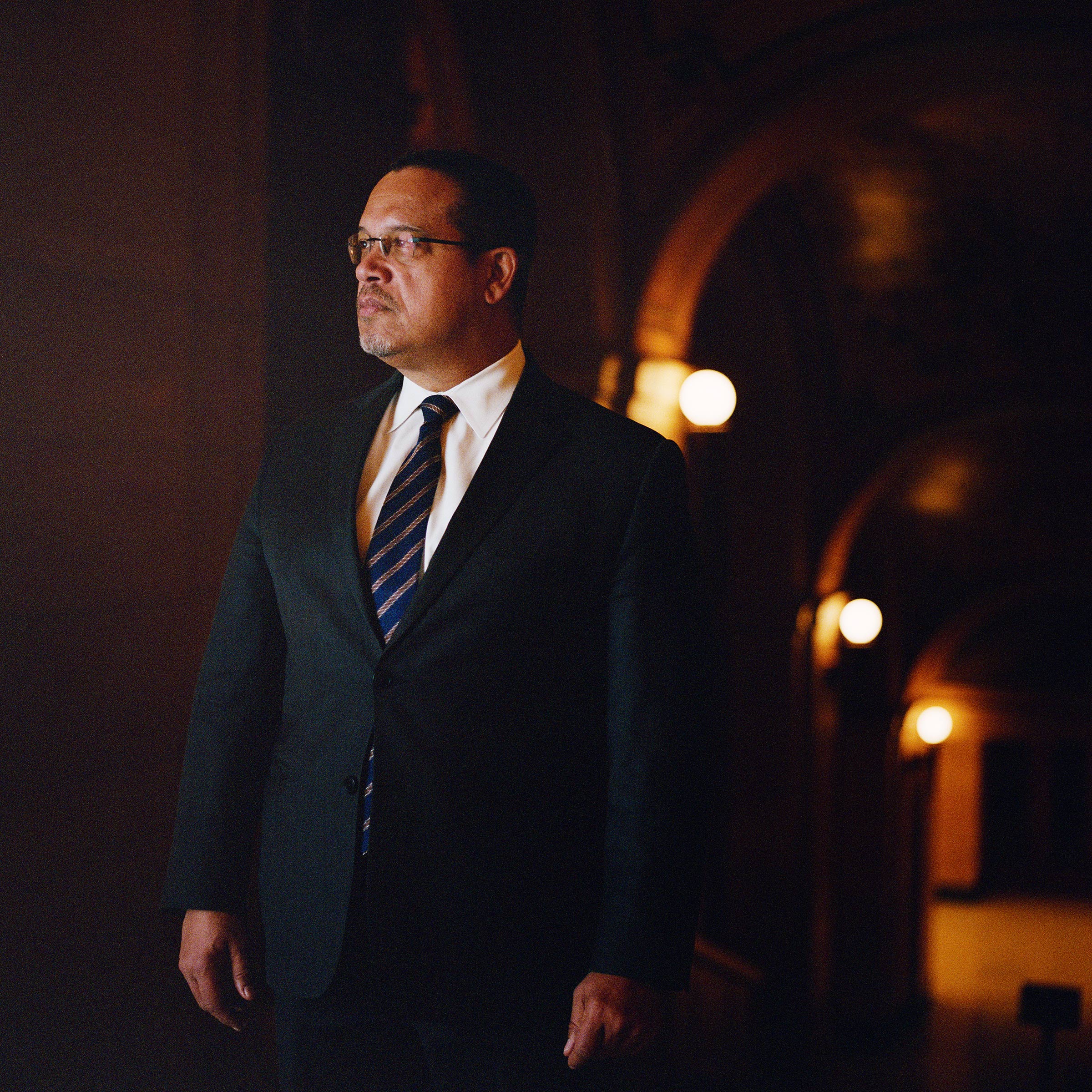
Minnesota Attorney General Keith Ellison, whose mother Clida Martinez Ellison died on March 26, 2020 at the age of 82. Hers was one of earliest COVID-19-related deaths in the midwest.
We grew up in the city of Detroit, in a neighborhood in transition. So, you know, our neighbors were some white folks who might might have been a little uncomfortable with, you know, how the neighborhood was changing and were saying “those Ellison boys over there, maybe they’re a gang. And my mom would walk up to them saying “These are my boys. The oldest one is six. They’re not a gang. Please don’t tell the neighbors that my sons are a gang. They’re nice boys. This is Leonard. This is Brian. This is Keith. If they ever do anything you don’t like, you let me know.” And after that, that guy was nice to us.
She was one of the early ones in Detroit. At the time, COVID-19 was raging and the numbers were very racially disproportionate. My mom’s a Black woman, and so for her to be in Detroit with COVID through the roof, I kind of feel that she was a victim of the overall marginalization of Black lives during the pandemic.
My mother lived 82 great years. She came to this world and she made the most of it; she was a woman of achievement; she had great love in her life; she had people who cared about her; and then she left. We should all be so lucky.
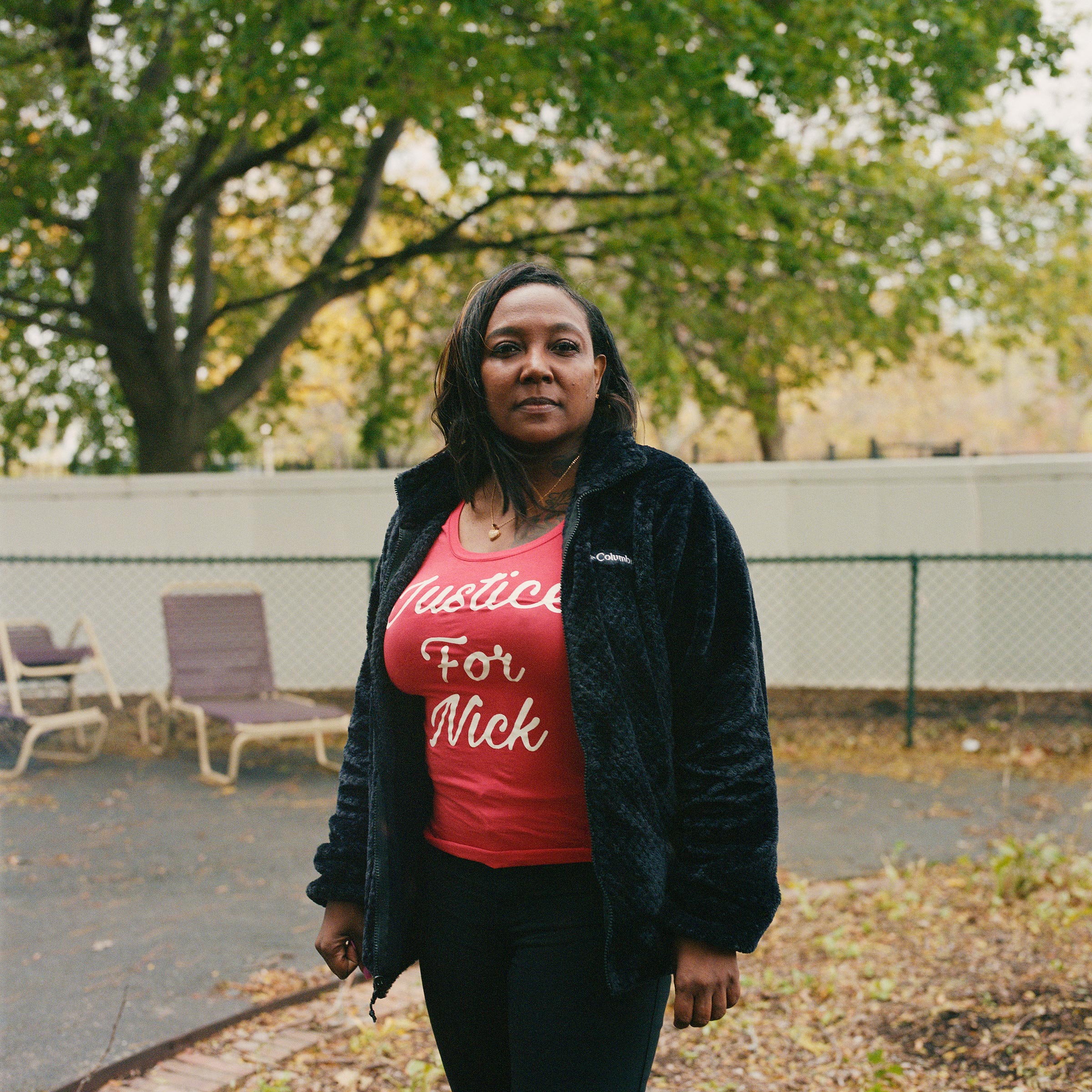
Cassandra Greer-Lee, whose husband Nickolas Lee died on April 12, 2020 at the age of 42. Nickolas was a pretrial detainee at Cook County Jail when he contracted COVID-19.
Early on in the pandemic, when the news would report COVID deaths from Cook County Jail, it would label them as “detainee number one” and “detainee number two.”
So when I got the phone call on April 12 at 4:20 a.m. from John Stroger Hospital telling me that my husband was no longer here, I called Channel 7, and I asked if I could send a picture of him because I wanted people to see he had a name. He had a face and he had a family that really loved him. And I didn’t want him to be labeled as “detainee number three.”
In the end, they did call him by his name—”Nicholas Lee, 42 years old, was the third person to die of COVID at the Cook County Jail”—and I will forever be grateful for that.
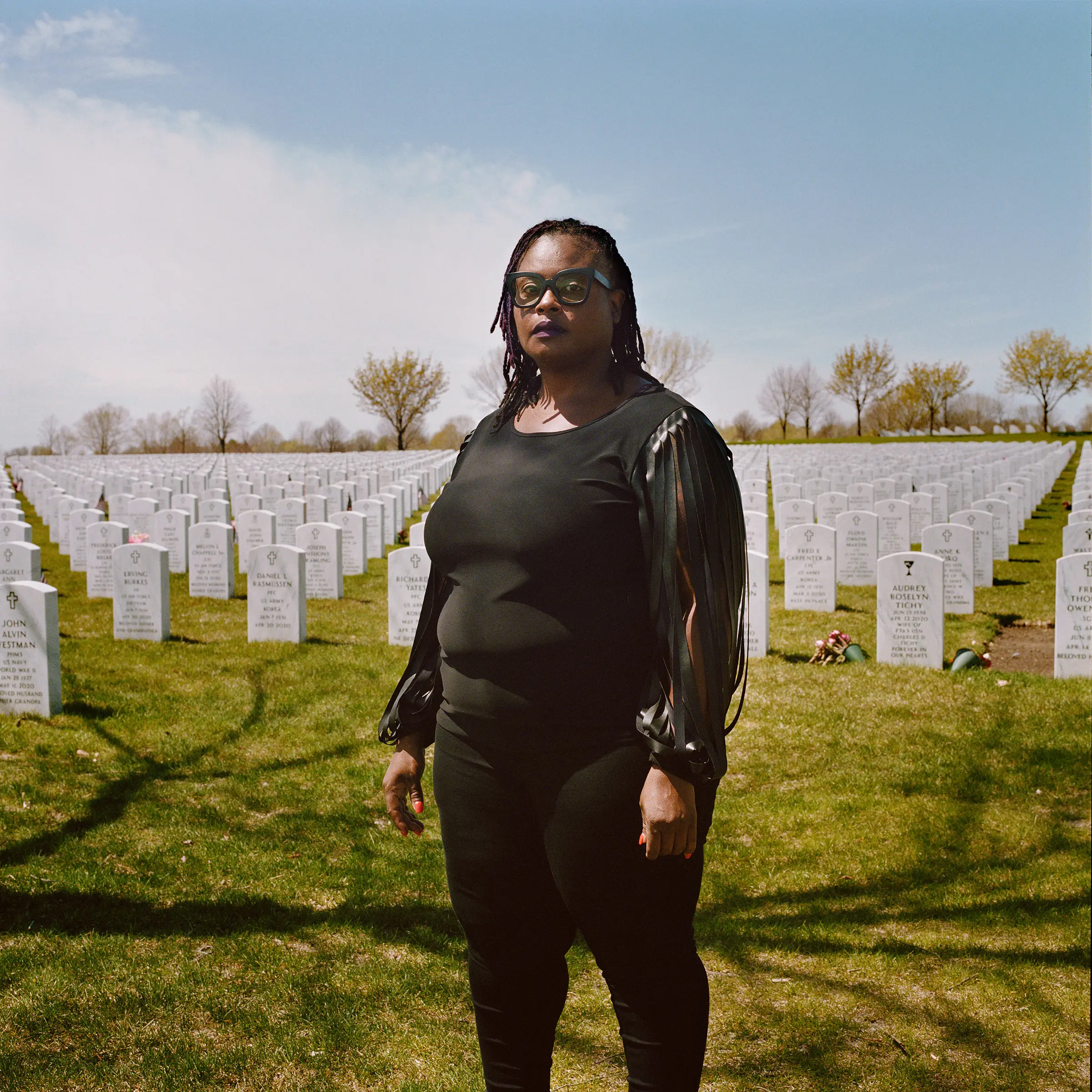
Akeya Watley, whose father, veteran Erving Burkes, died on April 20, 2020 at age 74. Burkes was exposed to COVID-19 while living at an assisted living facility.
I received a call from the director of the facility stating that there was a woman who moved in who tested positive for COVID and that I should not have any concerns because this lady was bedridden and already quarantined. But then I received another call stating that his test results came back positive. At first I wasn’t concerned because my father has had two quadruple bypass surgeries, two strokes, and I’m like, okay, he’s going to beat this, too.
The first time I went to the hospital this nurse showed me a patient that was not my dad. It was just another African-American male, with tubes everywhere. I went ballistic and started crying. An African-American nurse helped me find my actual father, and he had no tubes, and was talking and smiling and happy. But when he would cough, he would scream out in pain. On my last visit, a nurse promised me that she wouldn’t let him die alone. She gowned up and went back into his room, but by then he was already gone. He ended up dying alone. It felt like he was stolen from me, like I didn’t get the opportunity to say goodbye the way that I wanted to.
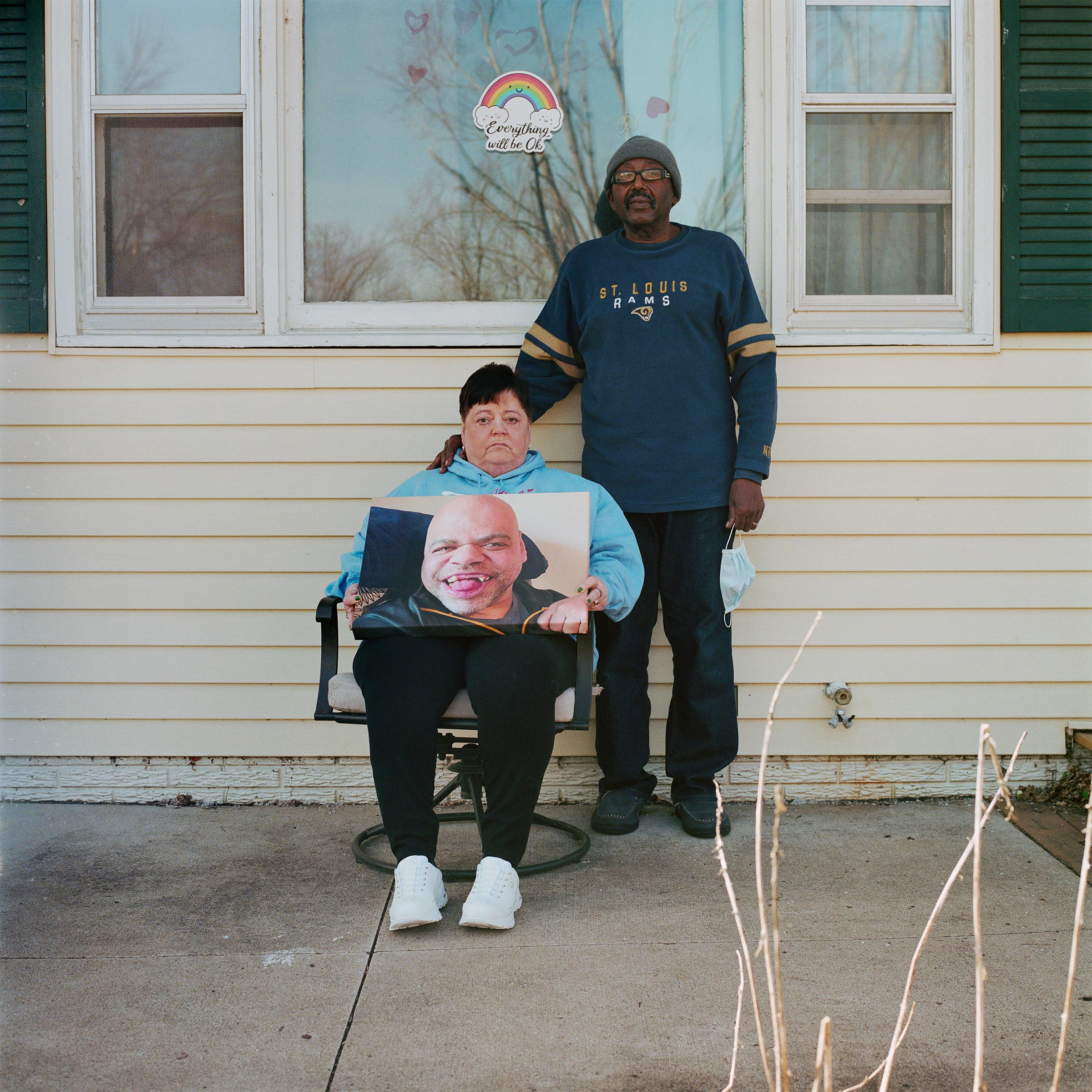
Pamela and Roy Clayton’s son Russell Angelo ‘LoLo’ Porter died on April 29, 2020 at 47. LoLo was the third resident to contract COVID-19 in a care facility, where he lived due to disabilities caused by meningitis he contracted as an infant.
I had received a call from the facility just saying that Angelo had tested positive for COVID. So there were eight residents in one home and eight in the one that Angelo was in, and all 16 of them had tested positive.
When he got to the hospital, the emergency room physician called me and said that your son is very, very sick. Then we were all [at home] when I got the phone call that his heart had stopped. They were trying to resuscitate him for about 10 minutes, but they couldn’t get his heart going again—I was on the phone with the doctor and I could hear them in the background trying to resuscitate my son. The worst part was not being able to be with him and hold his hand and tell him goodbye. That was the absolute worst day of our lives.
Some days, I’ll be fine and I’ll think about him and I won’t cry. And I think, OK, this is progress. And then two days later, I’m crying on the way to work because a thought randomly pops in my head. I think everybody grieves differently and maybe we’re thinking his funeral services would help us with acceptance– or maybe even with a service, we would just continue on the same path, in the same time frame.
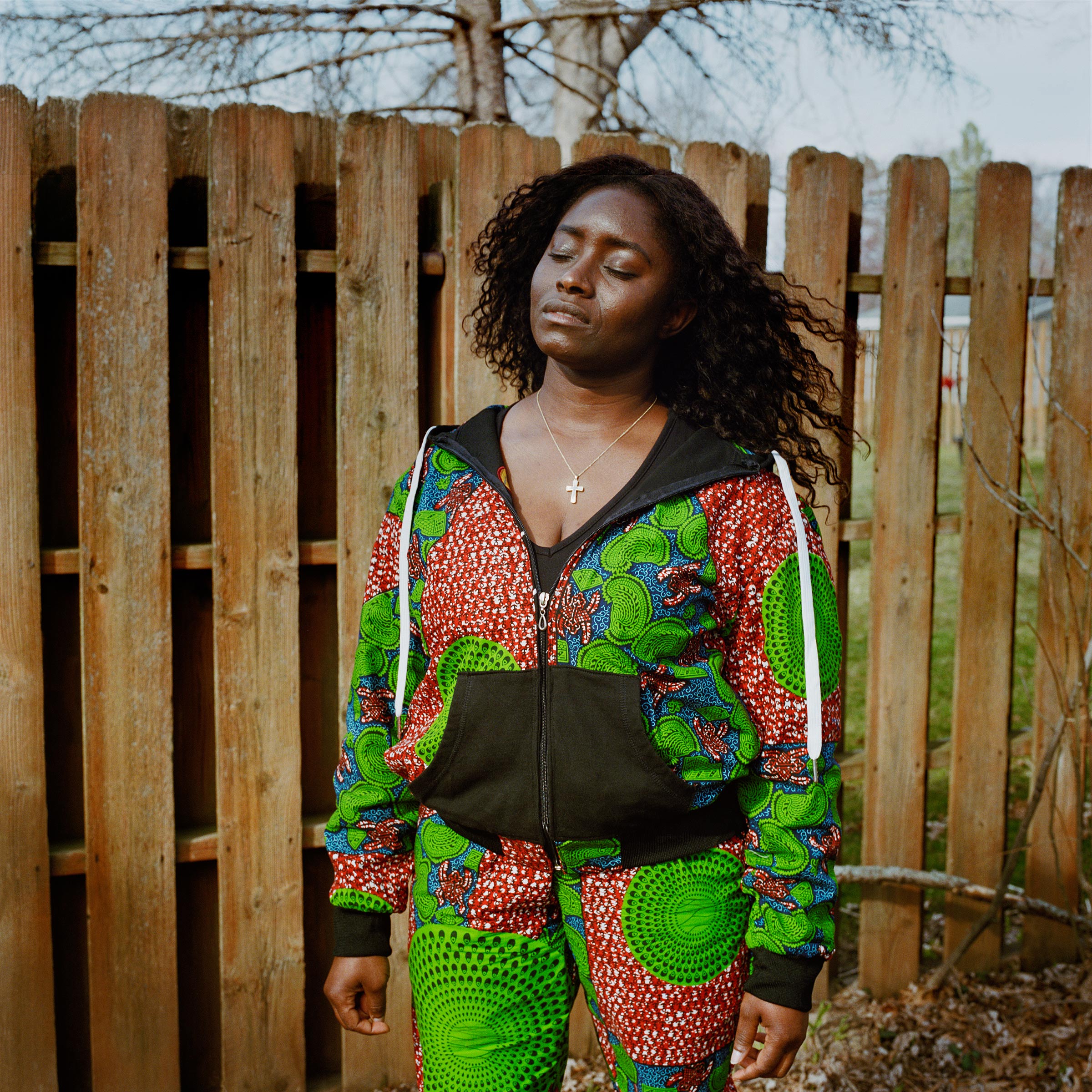
Sokonie S. Reed, whose mother Enid Z. Freeman died on May 9, 2020 at age 54. Freeman was a frontline nurse during the early days of the pandemic.
She was a nurse, so a health care worker on the front lines very early on with the virus. She was very, very careful outside of work as far as wearing her mask. We suspect that she contracted it at her job because at her job, there were several confirmed cases there, and that was early on when we didn’t really know too much about the virus and, you know, maybe people weren’t taking it as seriously as they should?
When my mother was hospitalized for COVID-19, her doctor intubated her, but said it was a long shot. He said they were only doing it because of her young age and because she’s “one of us,” and that regardless of how it went, they just wanted to say they “did everything.”
We thought we had a strong, close-knit family, but now that she’s gone, we’re now having to navigate and find different ways of trying to connect—she was that bridge on all sides.
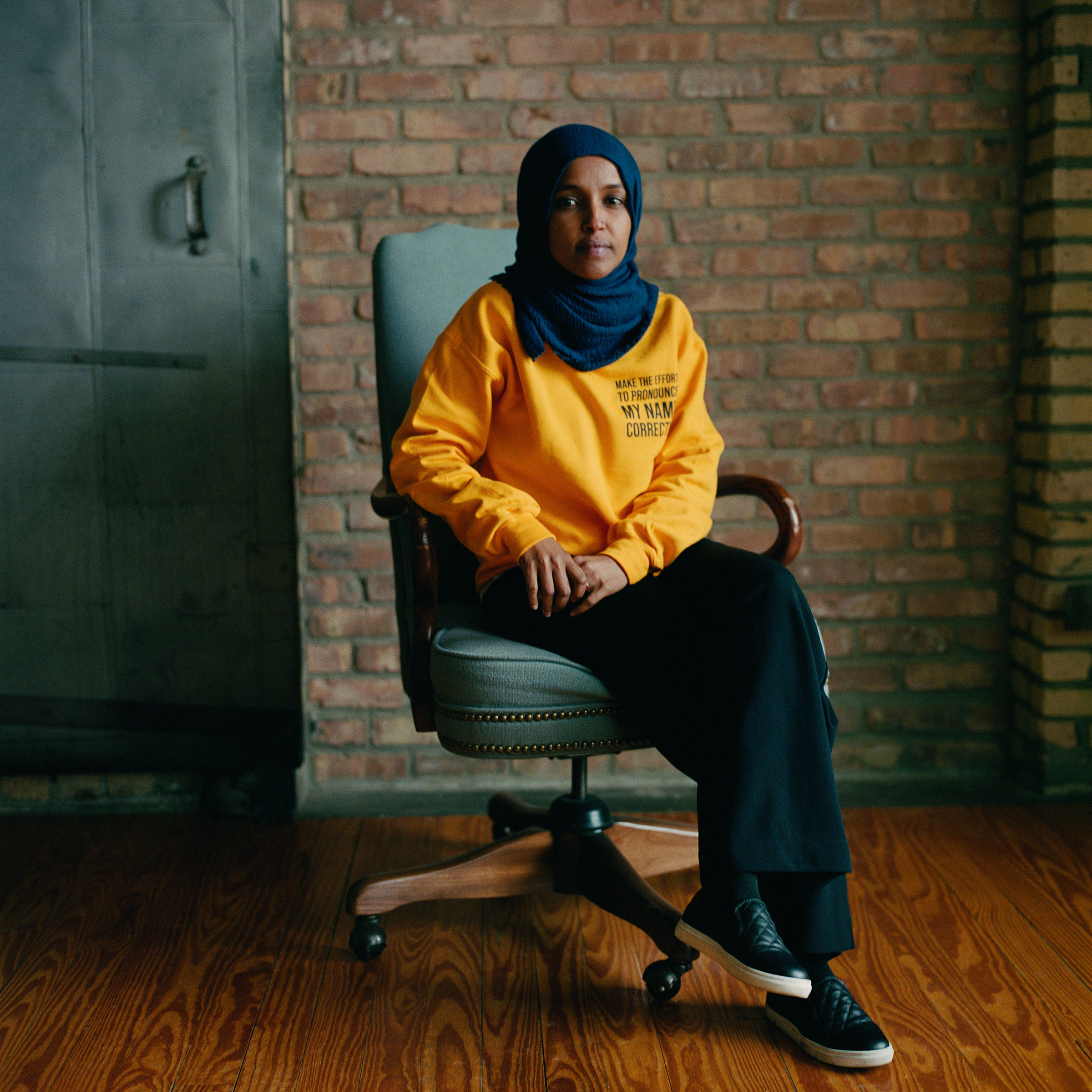
U.S. representative Ilhan Omar, whose father Nur Omar Mohamed died on June 15, 2020 at the age of 67. Mohamed had been traveling in Kenya, and returned to the U.S. just about the time the first cases of COVID-19 in the States were being reported.
The COVID-19 virus was first starting to be talked about in the news, and we didn’t really know much about it. My father was in Kenya, and he called to tell me he was coming back to the U.S. because it was an election year for me. It’s been hard thinking back to that conversation because the number of deaths we’ve had here, even just in Minneapolis in comparison to Nairobi, is so high. He most likely would have been safer in Nairobi.
He called and told me that he went to the doctor and they told him that he was COVID positive and he was possibly thinking of going to the hospital. At the time I was getting ready to go to a rally because of the murder of George Floyd. And I said, I’m going to stop by this rally and I’ll come see you and we’ll figure out what to do. I walk to the rally. And an hour later, my sister called and she said, “there’s an ambulance taking dad to the hospital.”
There were deliberate decisions made to not safeguard the lives of so many people. And, you know, there were treatments that might have been helpful in helping my father recover. But there was such a shortage and we were literally picking and choosing whose lives were worthy of protection and whose weren’t.
I think if he didn’t die of COVID, we probably would have taken our father back to his birthplace of Somalia so he could have been buried with my mother and his ancestors.
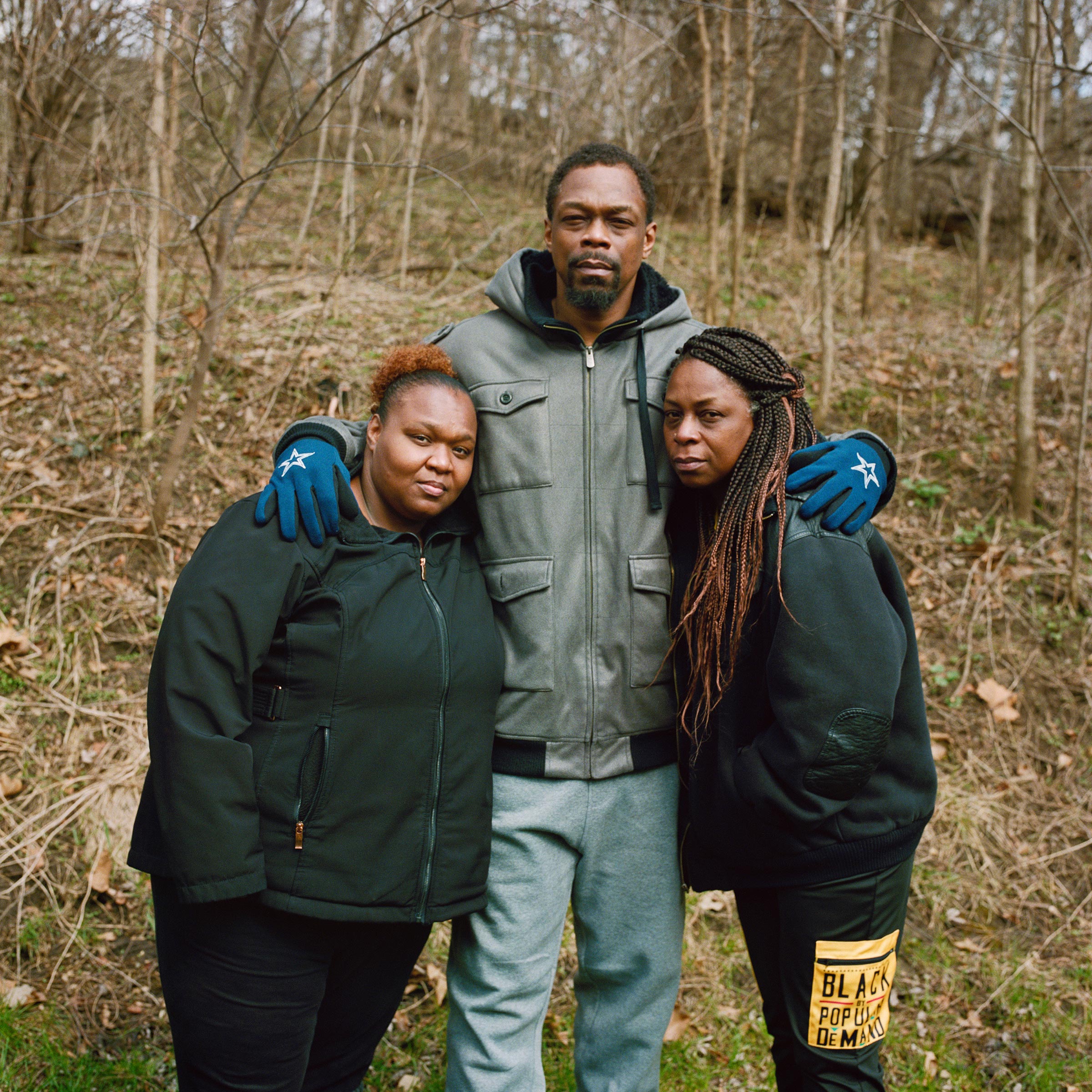
Married couple Rosie Ruth Morrow and Jerry Louis Morrow died 12 hours apart, on November 22 and 21, 2020, at the ages of 81 and 63, respectively. Above are their children Steven Harris and Frida Harris-Hobbs, and their granddaughter Saterrica Harris, who recalls how close Rosie and Jerry were.
I honestly believe that my grandma died from heartbreak. She and my grandpa had been together since the 1980s. When something was happening between one of them, you could see every day the whole dynamic changed.
The funeral service was different than we would have liked, since not all the people that we knew wanted to be there to pay their respects were able to come. Social distancing rules limited it to maybe 30 of us at a time. And my grandma has more than 30 grandchildren. I want to say that 80 people showed up ultimately, with people circulating in and out.
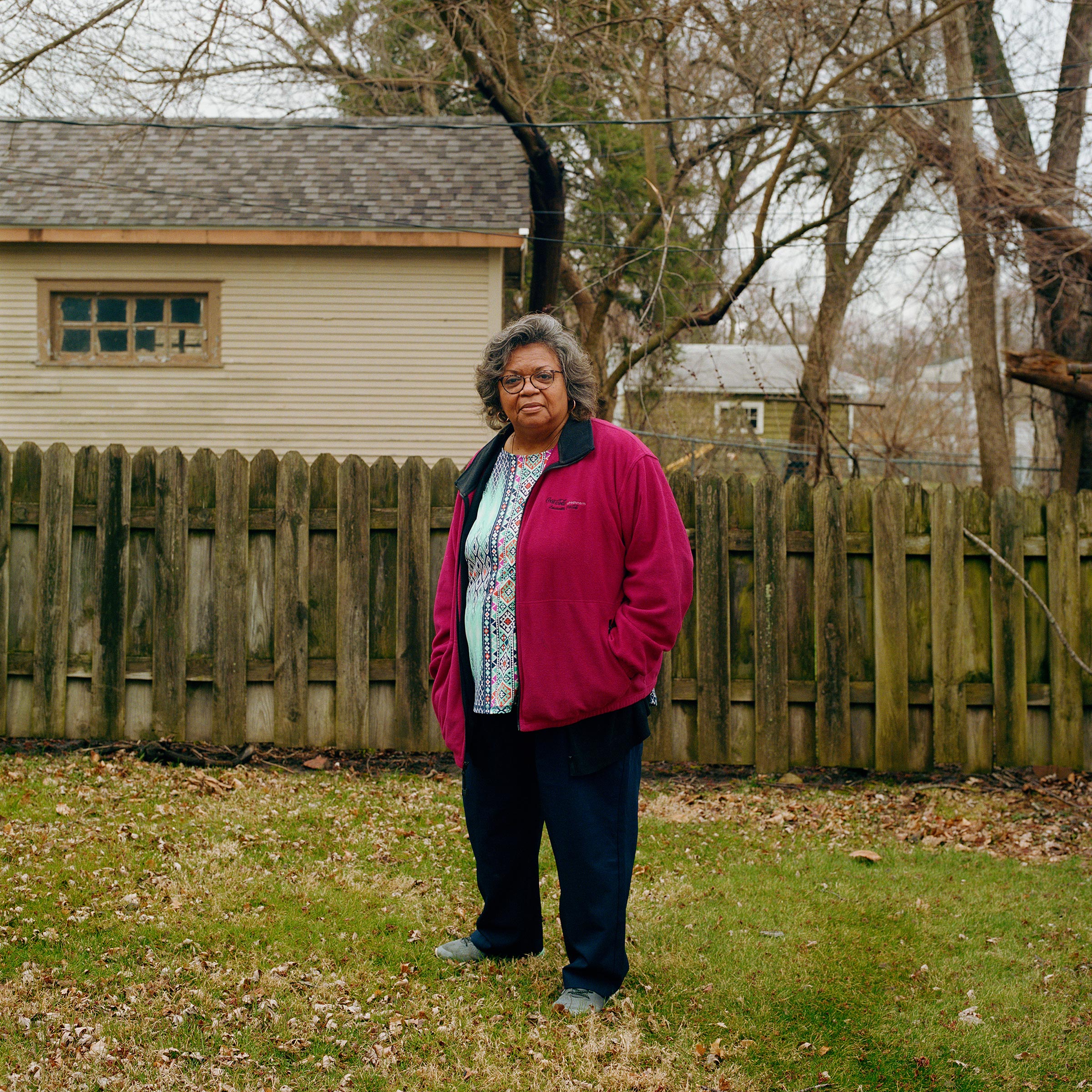
Francesca A. Armmer, an associate professor of nursing at Bradley University, whose cousin Ruby Diane Booker died on Jan. 7, 2021, at the age of 78. Before her death, Booker was researching African American history and genealogy.
I’ve had to get to the point where I could forgive myself. Because I missed some events. And I missed being able to talk with her because she was quite the historian-slash-genealogist. She found out that she had, I want to say a great grandfather, who had served in the Civil War. When she died, I thought, oh my gosh, if I could have just had a chance to talk with her to see what kinds of other things she found that she found out and never got a chance to write about.
It takes energy not to be incredibly sad. We have such a short attention span, about the presence of and the value of human beings. Here we are, with individuals dying every day. But it’s old news. And in reality, it’s not old news. It will never be old news. My cousin shows me, even in death, the importance and the pride of knowing your history, of knowing that all of us have a legacy that can be celebrated, and especially Black and brown families.
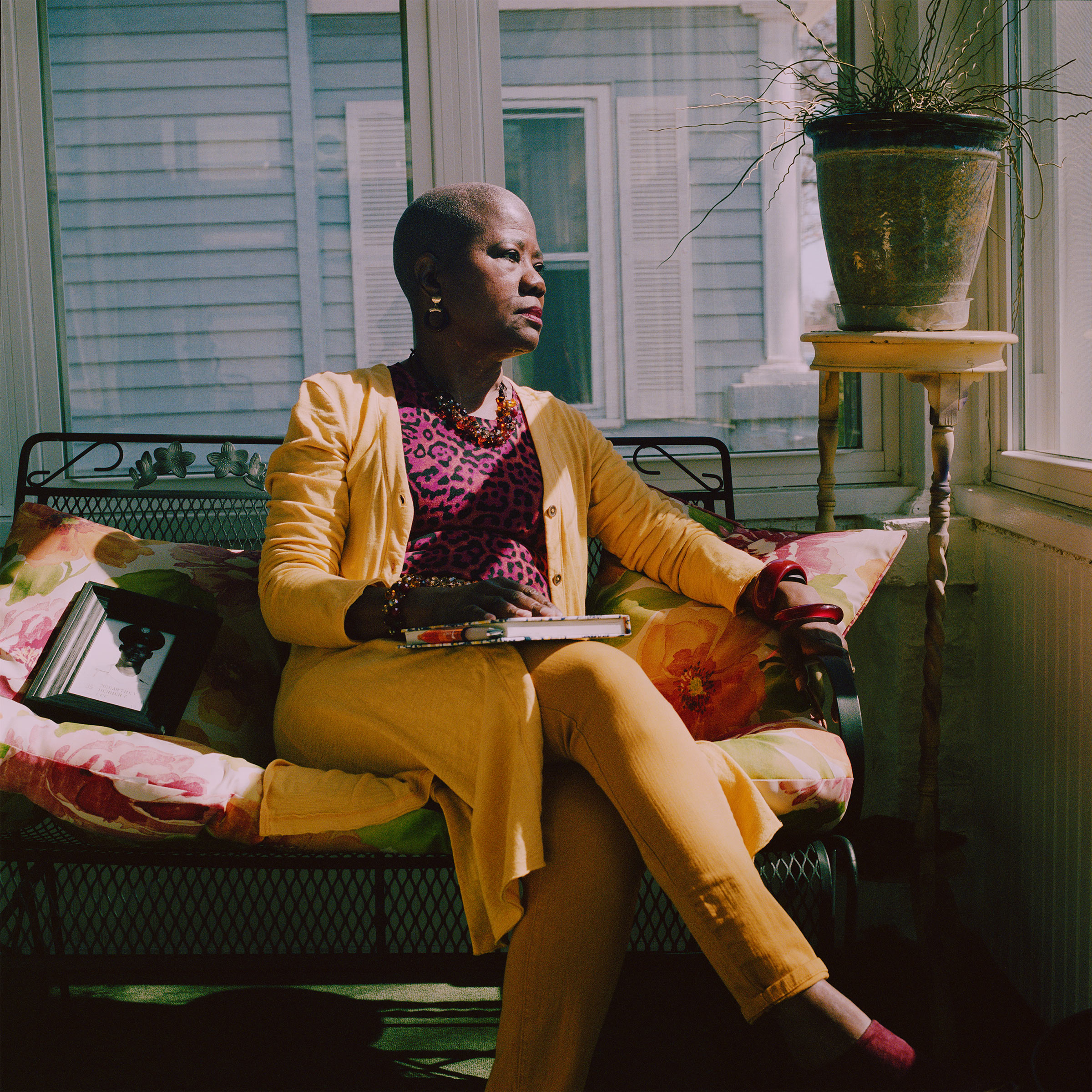
Laverne McCartney Knighton, whose brother Herbert Lee McCartney died on Jan. 16, 2021 at the age of 69. Knighton laments not being able to give his brother a proper farewell.
It was difficult, I tell you, to not even be able to bury loved ones in the form and fashion that we Black people are used to doing—having a full blown church service and everybody there and then having a repast.
My brother was my protector, my antagonist, my calm, my irritant, my laughter, my front, my back—just my brother. We journeyed through this life together and oh, how I wish I could have held his hand physically, been by his side as he drew his last breath thanking God. It is finished. He has received his complete healing in life. I loved you dearly in death. I love you still.
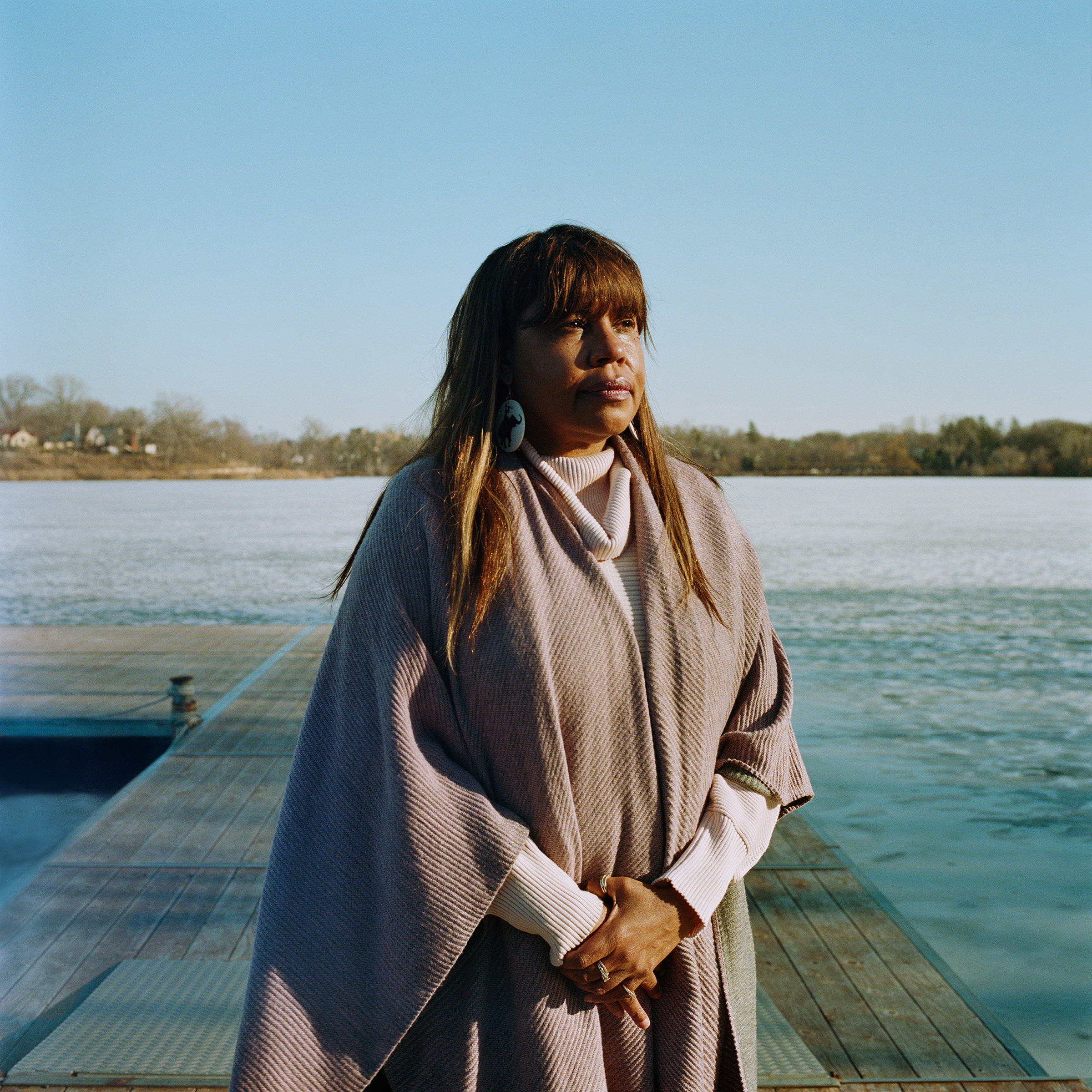
Theresa Neal’s “sister cousin” Sabra Mitchell, and Sabra’s son Travon, were both hospitalized with COVID-19 in January 2021. On Feb, 1, 2021, at the age of 62, Sabra passed away. That same day, 39-year-old Travon opened his eyes after being in an induced coma and on a ventilator for several weeks.
Travon had been in the hospital for two weeks and they were continuing to provide all of the medical support that they could for him. But Sabra’s decline came within a couple of days. Our focus was on praying for the health and well-being of Travon, and I needed for Sabra to know that it was okay to rest—and that we will do all that we could for her family. My belief was that that’s what she needed to hear, that a mother’s love is powerful and strong and that she waited and endured it until she knew her son was going to be okay.
He is recovering now and the medical staff have said that there is no medical explanation for his recovery, given his critical condition.
What’s etched in my mind was that at the time of her death, there was so much media publicity on the bigger picture—about the U.S. approaching 500,000 deaths. And I saw that number as something that impacted someone else, that some other family was experiencing that loss. And then that 500,000 mark now included my loved one.
—Additional reporting and producing by Julianna Olsen
This project was funded by the National Geographic Society.
To hear in-depth audio recordings of the subjects in their own words visit https://www.andreaellenreed.com/black-covid.
More Must-Reads from TIME
- Inside Elon Musk’s War on Washington
- Meet the 2025 Women of the Year
- The Harsh Truth About Disability Inclusion
- Why Do More Young Adults Have Cancer?
- Colman Domingo Leads With Radical Love
- How to Get Better at Doing Things Alone
- Cecily Strong on Goober the Clown
- Column: The Rise of America’s Broligarchy
Write to Simmone Shah at simmone.shah@time.com
